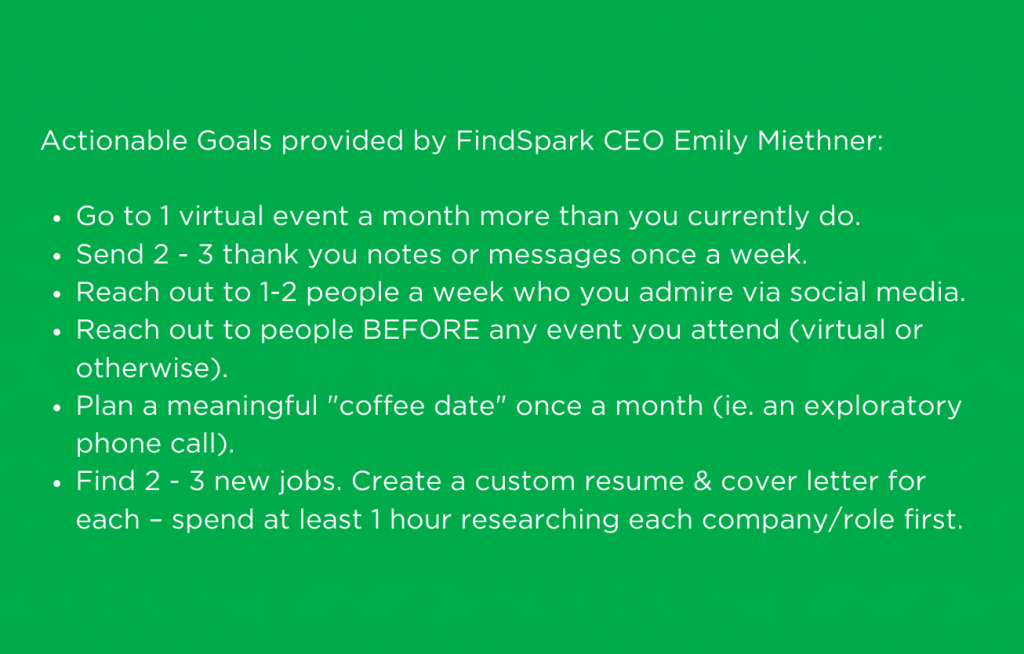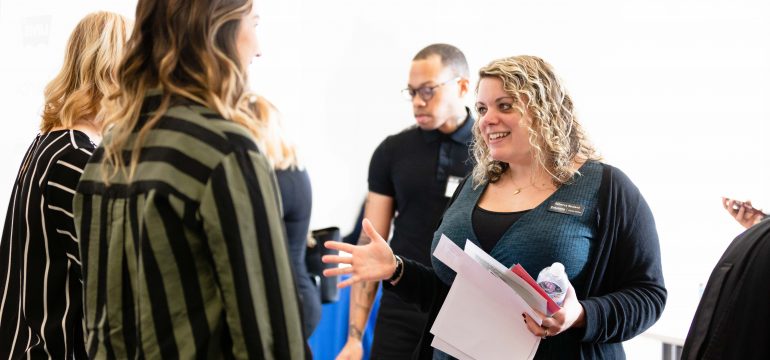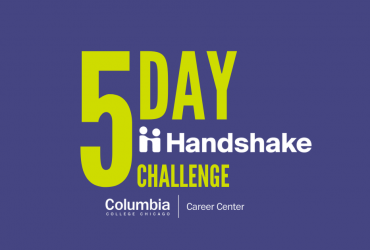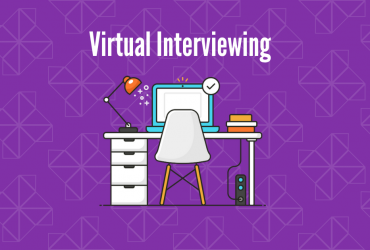by Quinn Hegarty, Internship and Career Advisor
How do you lock down a job when the world is on lockdown?
On April 2nd, FindSpark led a panel of experts from a variety of industries intent on answering just that question. “Job Hunting, Networking, and Work During COVID-19” featured panelists Antoinette Miller (NBCUniversal Media), Cat Gulacsy (Calling All Talent), Ricky Tiscareno (Shapeways), Eva Amessé (Sony Music Entertainment), and Emily Miethner (FindSpark).
Couldn’t make the panel? Don’t worry, we were there! (If you’re feeling a little FOMO, worry not – you can view the panel on demand right now: https://www.findspark.com/your-career-during-covid-19). Keep reading for seven of the most valuable pieces of advice we took away.
1.Take a second to breathe (and feel how you’re feeling).
If you’re graduating this spring, or if you’ve had a job or internship offer cancelled, remember that it’s okay to be disappointed right now. It’s okay to feel uneasy, sad, and frustrated about what this moment has done to your plans. You’ll feel more motivated and optimistic in your career exploration if you take the time to acknowledge the challenges and negative feelings that this time may be presenting to you.
2. Get curious.
Many industries have slowed down or paused, but there’s a wealth of knowledge about them that hasn’t gone anywhere. Take this time to dive into researching your field. Find out what’s going on through industry-specific news sites, blogs, YouTube channels, and social media. “Think about the conversations that you’ll be having in interviews,” says Eva Amessé of Sony Music – and use this time to make sure you’ll have lots to talk about.
Not sure where to start with your research? Your Career Center advisors are experts in their industries – reach out to them for a jumping-off point, and make sure to read your Internship and Career Advisor’s weekly emails for new resources every Wednesday!
3. Reach out – but be specific.
Now might also be an ideal time to do some research on key individuals in your field. Chances are, they have a more free time right now too, and would be delighted to help an emerging colleague. Even if their company isn’t hiring right now, it might still be worth asking for an exploratory call (A.K.A. an informational interview). Make a list of questions you have about trends in your industry, how they forged their own career path, and what advice they might have for you. If you can’t get a direct connection to someone, tap into your built-in professional network – your friends, professors, family, and previous employers – to see who could connect you to someone.
“Leverage the people around you,” advises Amessé, “and know that we all want to help.”
The secret to this approach, though, is to “be very specific in your outreach,” says Ricky Tiscareno. Research who’s who in the company, and who might be making hiring decisions. Think about why you specifically want to talk to them specifically. Remember to think of this exchange as a give-and-take: what do you offer them? The answer could be your skills and experiences as a prospective employee, or it could be as simple as a thank-you note asking how you can return the favor.
4. Keep current with your connections.
Speaking of follow-up: think about the relationships you may already have and remember that even if they don’t have an opportunity for you right now, they want you to stay in touch. Look at it from their perspective – companies aren’t going to want to start from scratch building relationships once the COVID-19 crisis is over. Make sure you’re keeping all your existing connections active for once we’re on the other side of this. Of course, make sure you’re doing this in a considerate way – not contacting hiring managers or recruiters every day, but sending check-ins and updates periodically.
“Be patient, but persistent,” advises Tiscarino. “Think like a recruiter,” he says, and keep a spreadsheet of where you’ve applied and who you’re reaching out to.
Of course, directly contacting someone is only one way you should be keeping your network updated. Make sure your LinkedIn, resume and portfolio are current, even if you’re not employed right now. This might mean working for yourself and digging into a side project, says Cat Gulacsy of Calling All Talent – and who knows, that passion project might turn into something extraordinary!
5. Work on new skills and flex the ones you’ve got!
Now is a great time to ask yourself, “what industry-specific skills can I be learning right now?” Platforms like LinkedIn Learning, Udemy, and Skillshare all are offering free or discounted courses right now (but P.S. – as a Columbia College Chicago student, LinkedIn Learning courses are already free to you)! Ask your mentors or recruiters what the essential skills are that you need to have in your toolkit, and what skills and experience gaps you could focus on filling.
It’s equally important to reflect and ask, “what functional skills do I already have?” Look at your resume for transferable skills like communication, strategic thinking, and project management. “These skills are in high demand” within any industry, says NBCUniversal’s Antoinette Miller, and that demand is not going away. The way you talk about these skills is just as important as recognizing you have them.
To make sure you’re putting your best self forward, have your resume reviewed multiple times before you apply for a position. Have several different types of resumes that are responsive to the types of jobs you’re seeking, and tailor your resume to the position description of every new job you apply to. In that same vein, make sure you never skimp on the cover letter – it’s your chance to demonstrate your knowledge of the organization and get them excited to learn more about you.
Looking for someone to review your resume and cover letter? The Career Center can do that virtually, too! Make an appointment with your Career Development experts or our peer coaches.
6. Prepare for the interview – before you’re even offered one.
When applying for a position, assume that you will be getting an interview and prepare as such, says Tiscareno. The more prepared you are, the more you’ll shine. This means taking your industry research a step further and becoming an expert on the company you’re applying with. Preparing yourself mentally is just as important, says Miller. Take a walk, get moving, or do whatever works for you to get into an optimistic, energized mindset before the interview.
Feeling unsure about a Zoom or FaceTime interview? Remember that a video call can offer a unique advantage: grab some Post-Its and jot down past career wins and skills you want to make sure to talk about. Stick them on the screen in front of you to have on hand during the interview, and you’ve got an instant confidence booster.
Want a test-run to make sure you’re coming across as the star you are? Use Big Interview to prepare with lessons, coaching, and interactive practice interviews. Record yourself and watch your answers back, and then send your answers to the Career Center for feedback!
7. Be realistic but stay motivated.
Much like the young professionals who graduated college during the Great Recession in 2008 and 2009, this era’s emerging workforce might experience some employment gaps. Those interviewing you in the future will completely understand if you have a gap in your resume, or if you had to pivot and temporarily find work in a different industry. Your honesty about the difficulties of this time will create a human connection. Your story of resilience – how you explain the industry-relevant skills you gained in your time working outside your industry, or the passion projects you worked on in the meantime – will set you apart as an even stronger candidate.

FindSpark’s will be doing offering another session of the workshop, “Job Hunting, Networking, and Work During COVID-19” on May 13th, https://www.findspark.com/job-hunting-networking-and-work-during-covid-19/






